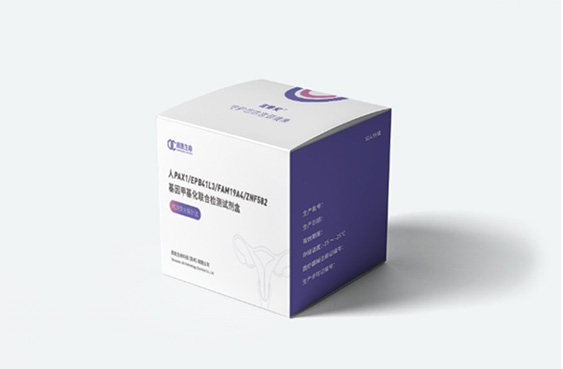
To make up for the shortcomings in the existing diagnostic plans for cervical cancer, Onkai conducted big data screening based on the public database of cervical cancer related methylation sites, combined with algorithm optimization, and ultimately selected four high-performance targeted gene sites Based on this, a DNA methylation detection product for cervical exfoliated cells was developed This product detects the DNA methylation status of four genes related to cervical lesions through qPCR, achieving precise detection of precancerous lesions



